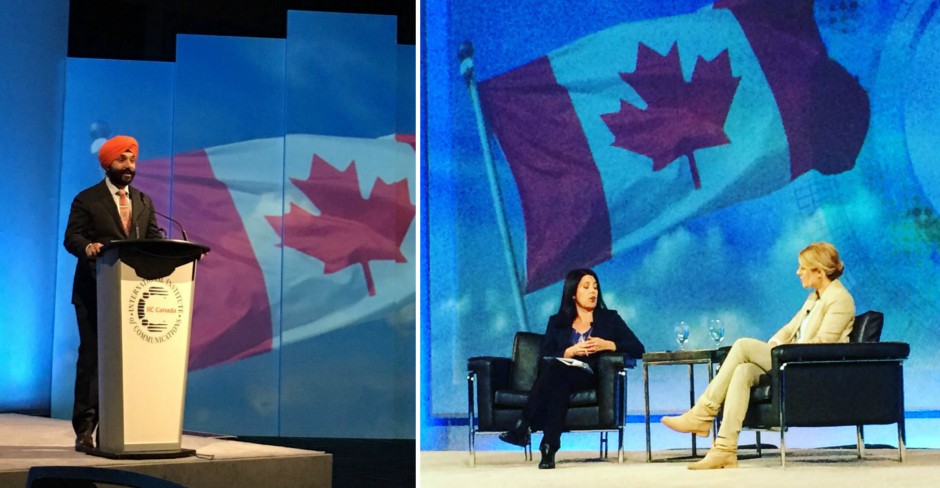Why won’t Minister Joly and Minister Bains take the Internet Tax off the table?
Cynthia Khoo briefly reports back from a recent conference where federal Ministers Mélanie Joly and Navdeep Bains responded to rumours about the “Internet Tax” — an ill-advised idea that has taken the digital rights world by storm.
This week, I had a chance to observe firsthand how federal Ministers Mélanie Joly and Navdeep Bains are responding to rumours of the “Internet Tax” that have taken our corner of the digital rights world by storm.
Spoiler alert: it was not reassuring.
Don’t want an Internet Tax? Add your name now to stop this 'Digital Tax on Everything'
Heritage Minister Joly is heading up the #DigiCanCon review that spawned the Internet Tax. Minister Bains is responsible for Innovation, Science, and Economic Development— this includes broadband connectivity and ensuring that everyone in Canada has affordable Internet no matter where they live, including indigenous communities and rural and remote regions.
Both ministers answered questions about taxing Internet service providers (ISPs), at the 2016 annual conference of the International Institute of Communications. For many reasons — which I go over here— many Canadians want the idea off the table.
Unfortunately for Internet users across Canada, that wasn’t quite what happened this week.
Joly was asked to address concerns that a levy on the Internet would make Canada’s already-high Internet prices even more expensive. She stuck to her line that “everything is on the table,” despite acknowledging the importance of Internet access to Canadians.
When asked a similar question, Bains backed up the heritage minister by first joking, “What did my colleague Minister Joly say?” He then dodged the issue by focusing on the “Netflix tax” instead — a different tax the Liberals have already promised not to implement.
The refusal to put the Internet Tax to bed is a worrying situation for those who care about improving Internet access and connectivity in Canada. Perhaps the most frustrating part, though, is that neither minister needs this tax to fulfill their mandate.
In fact, such a move would directly harm what Bains has stated he is working to achieve within his portfolio. As Canada Research Chair in Internet and E-commerce Law Michael Geist wrote:
[M]any of Joly’s comments and the pressures from some stakeholder groups point to the prospect of new Internet fees or regulations to support the domestic industry. Should that happen, it is increasingly likely that Bains and Joly will present dramatically different visions of Canada’s digital future with policy proposals that are fundamentally incompatible with one another.
As for Joly, there are many other options on the table, when it comes to the question of how to fund Canadian content. These include drawing from general tax revenues, revitalizing benefits packages from broadcasting mergers, increasing or adding new tax credits, and removing the GST/HST exemption for foreign services such as Netflix. (This means charging Netflix and similar companies the standard sales taxes that Canadian services already pay, and is different from the “Netflix tax”.)
Whichever new policies Minister Joly decides to go with, however, let’s make sure that both she and Minister Bains know which one should be the first to go. You can help do this by adding your voice to the more than 14,000 people who have already asked the government to stop the Internet Tax, and sign the petition now.
Cynthia Khoo is an Ottawa-based Internet and digital policy lawyer, currently representing or working with OpenMedia on a variety of files.



 Take action now!
Take action now!
 Sign up to be in the loop
Sign up to be in the loop
 Donate to support our work
Donate to support our work